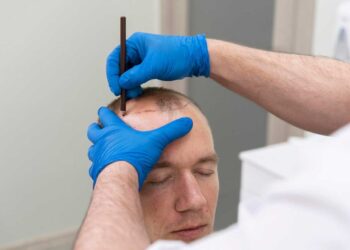Since the dawn of human civilization, the act of female ejaculation, also referred to as squirting, has generated a great deal of controversy and intrigue. Women often wonder when it is safe for them to stop ejaculating, female ejaculation is a natural and healthy part of women’s sexuality, yet it often gets misunderstood or stigmatized. As we discuss female ejaculation in this article, we will examine its impact on sexual health as well as its changes as women age. Additionally, it’s important to consider other factors that can affect women’s health, such as the occurrence of a yeast infection during periods, which can be common due to hormonal fluctuations and changes in vaginal pH.
Ejaculation in women.
It is possible for females to experience ejaculation at any age, though some women may experience it more difficult as they age. It is possible for female ejaculation to be influenced by factors such as pelvic muscle strength, hormonal changes, and sexual practices. Ejaculation is most common during sexual encounters or other forms of vaginal stimulation, such as fingering or oral sex, for women.
The fluid released during female ejaculation is believed to come from Skene’s glands, which are located near the urethra. Female ejaculation differs from urination in many ways. There can be a wide range of consistency and color, and the fluid can vary from a few drops to large amounts. Though it is unclear what the exact purpose of female ejaculation is, it can enhance women and their partners’ sexual pleasure and intimacy.
Despite the fact that we don’t fully understand what causes female ejaculation, research has shown that it involves stimulating the g-spot, which is located approximately two to three inches inside the vaginal wall. In response to sexual stimulation and arousal, the skene’s glands fill up with fluid and release it through the urethra.
Although female ejaculation is often associated with orgasm, not every woman experiences it. The amount of fluid released by women can also vary widely from woman to woman, with some producing only a few drops and others releasing a significant amount. In fact, some women may not even be aware that it is possible.
There is a lot of confusion surrounding female ejaculation, but it is important to know that it is a natural bodily function and is a natural part of our system. In order for individuals to experience successful sexual experiences, it is equally important for them to communicate their desires and boundaries with their partners, and to prioritize mutual pleasure and consent during all sexual interactions.
At what Age Do women stop Ejaculating?
The relationship between age and female ejaculation is another aspect of female sexuality that is subject to numerous myths and misconceptions as with many others.
Regardless of one’s age, it is important to remember that sexual functions and desires can vary greatly among individuals, as well as the fact that age is not the only factor that can affect your sexual experience. Even if you are a woman of any age, you can still enjoy a healthy and fulfilling sexual life if you seek accurate information and support.
Contrary to common beliefs, research has shown that a great deal of women continue to have active and satisfying sex lives well into their older years, despite the myth that older women do not want to or are incapable of having sex. According to some studies, women in their 60s and 70s are more likely to be satisfied with their sexual life than younger women on average. Despite the fact that it is true that the desire for and function of sexual activity can change over time, it does not mean that older women are exempted from enjoying sexual pleasures.
Female ejaculation and aging are not well studied, but some studies have found that women may experience changes in the ability to ejaculate as they age. The findings of one study, for instance, indicate that women in their 20s tend to experience female ejaculation more frequently than women over the age of 50. There has been no significant difference across different age groups regarding female ejaculation frequency or intensity.
As part of hormonal changes, female ejaculation could be affected in another way. According to some research, women who are postmenopausal or have undergone a hysterectomy may notice a decrease in the amount of fluid they produce when ejaculating. In spite of this, there needs to be more research conducted to gain a better understanding of the connection between hormonal changes and female ejaculation.
Regardless of how old or how often a woman ejaculates, it is an extremely normal and healthy sexual response, regardless of her age or frequency of ejaculation. In case you are experiencing changes in your ability to ejaculate, or if you are concerned about your sexual health, it is always a good idea to speak with a healthcare provider.









